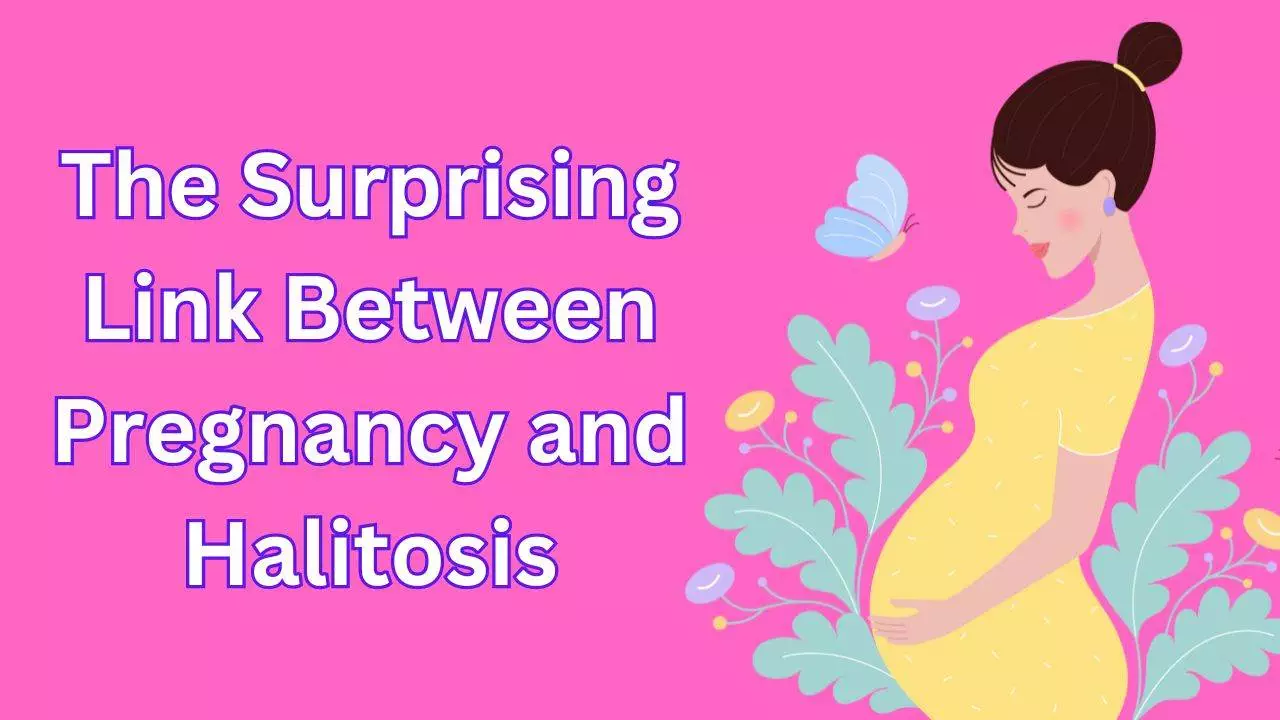
Introduction
Halitosis, or bad breath, is a common issue that many people experience at some point in their lives. However, it can be particularly prevalent during pregnancy. Understanding the causes and remedies for halitosis during pregnancy is important for expectant mothers to maintain good oral health and overall well-being.
Understanding the Causes of Halitosis During Pregnancy
Halitosis is often caused by the breakdown of food particles in the mouth by bacteria. This breakdown produces sulfur compounds, which can result in an unpleasant odor. During pregnancy, there are several factors that can contribute to bad breath. Hormonal changes, such as an increase in progesterone levels, can lead to an increase in the production of saliva. This excess saliva can create an environment that is conducive to the growth of bacteria, leading to bad breath.
Hormonal Changes and Their Impact on Oral Health During Pregnancy
Hormonal changes during pregnancy can have a significant impact on oral health. Increased levels of progesterone can cause the gums to become more sensitive and prone to inflammation. This can lead to a condition called pregnancy gingivitis, which is characterized by red, swollen, and bleeding gums. If left untreated, pregnancy gingivitis can progress to periodontal disease, which can contribute to bad breath.
Morning Sickness and Its Role in Causing Bad Breath
Morning sickness is a common symptom experienced by many pregnant women. It is characterized by nausea and vomiting, often occurring in the morning but can happen at any time of the day. The stomach acid that is brought up during vomiting can cause damage to the teeth and gums, leading to bad breath. Additionally, the smell of vomit can linger in the mouth, contributing to halitosis.
To manage morning sickness and bad breath, it is important to rinse the mouth with water or a mouthwash after vomiting. Brushing the teeth with a mild toothpaste can also help remove any residual vomit and freshen the breath. It is important to wait at least 30 minutes after vomiting before brushing, as the stomach acid can temporarily weaken the enamel on the teeth, and brushing immediately can cause further damage.

The Connection Between Dehydration and Halitosis in Expecting Mothers
Staying hydrated is crucial during pregnancy for both the mother and the baby. Dehydration can lead to a dry mouth, which can create an environment that is favorable for the growth of bacteria. This can result in bad breath. Drinking plenty of water throughout the day can help keep the mouth moist and prevent the buildup of bacteria.
How Nutritional Deficiencies Can Contribute to Bad Breath During Pregnancy
Nutritional deficiencies can also contribute to bad breath during pregnancy. Certain vitamins and minerals, such as vitamin C and zinc, play a crucial role in maintaining oral health. Deficiencies in these nutrients can lead to gum disease and other oral health issues, which can cause bad breath. It is important for expectant mothers to maintain a balanced diet and consult with a healthcare provider about any necessary supplements.
Oral Hygiene Habits to Adopt During Pregnancy to Combat Halitosis
Maintaining good oral hygiene is essential for preventing and managing bad breath during pregnancy. Brushing the teeth at least twice a day with a fluoride toothpaste can help remove plaque and bacteria that can cause bad breath. Flossing daily is also important for removing food particles and bacteria from between the teeth and along the gumline. Using a mouthwash can provide additional protection against bacteria and freshen the breath.
The Role of Medications in Causing Bad Breath During Pregnancy
Certain medications that are commonly prescribed during pregnancy can contribute to bad breath. For example, prenatal vitamins often contain iron, which can cause a metallic taste in the mouth and contribute to halitosis. It is important for expectant mothers to discuss any medications they are taking with their healthcare provider to determine if they may be contributing to bad breath.
The Importance of Regular Dental Check-Ups During Pregnancy
Regular dental check-ups are important for maintaining good oral health during pregnancy. Dental cleanings can help remove plaque and tartar buildup, which can contribute to bad breath. Additionally, the dentist can identify any potential issues, such as gum disease or tooth decay, and provide appropriate treatment. It is important to inform the dentist of the pregnancy, as certain treatments may need to be modified to ensure the safety of the mother and the baby.
Natural Remedies for Treating Halitosis During Pregnancy
There are several safe and effective natural remedies that can help treat bad breath during pregnancy. Chewing on fresh herbs, such as parsley or mint, can help freshen the breath. Drinking herbal teas, such as green tea or chamomile tea, can also help reduce bad breath. Additionally, rinsing the mouth with a mixture of water and baking soda can help neutralize odors and kill bacteria.
It is important to consult with a healthcare provider before trying any natural remedies, as some herbs and substances may not be safe during pregnancy. They can provide guidance on which remedies are safe and appropriate for individual circumstances.
When to Seek Medical Attention for Persistent Bad Breath During Pregnancy
While bad breath is common during pregnancy, persistent bad breath may be a symptom of a more serious condition. If bad breath persists despite practicing good oral hygiene and making lifestyle changes, it is important to seek medical attention. Persistent bad breath can be a sign of an underlying health issue, such as an infection or gastrointestinal problem. A healthcare provider can evaluate the symptoms and provide appropriate treatment.
Conclusion
Halitosis during pregnancy is a common issue that can be caused by a variety of factors. Understanding the causes and remedies for bad breath is important for expectant mothers to maintain good oral health and overall well-being. By practicing good oral hygiene, staying hydrated, and seeking medical attention when necessary, pregnant women can effectively manage halitosis and enjoy a healthy pregnancy.









